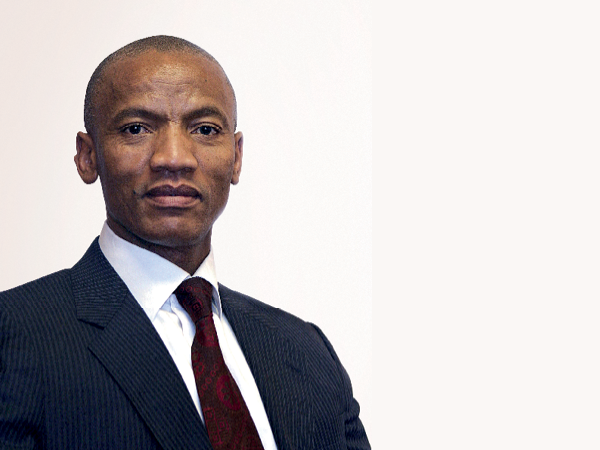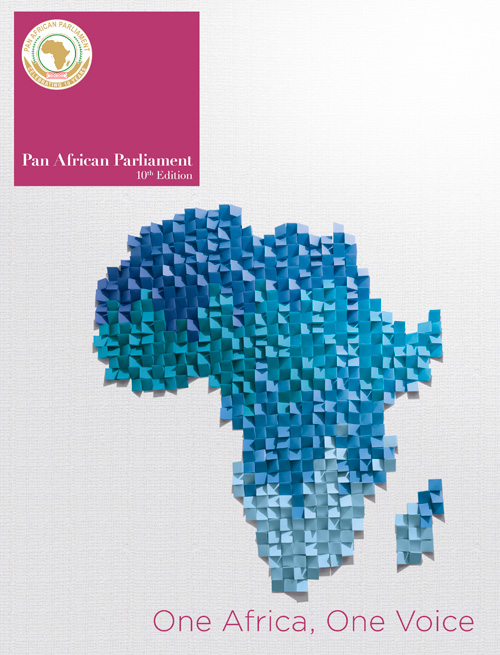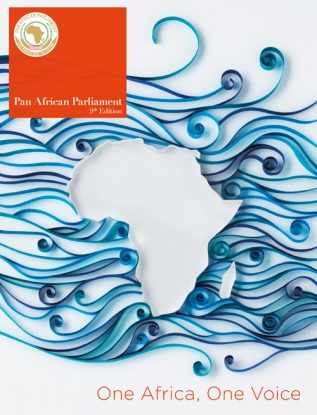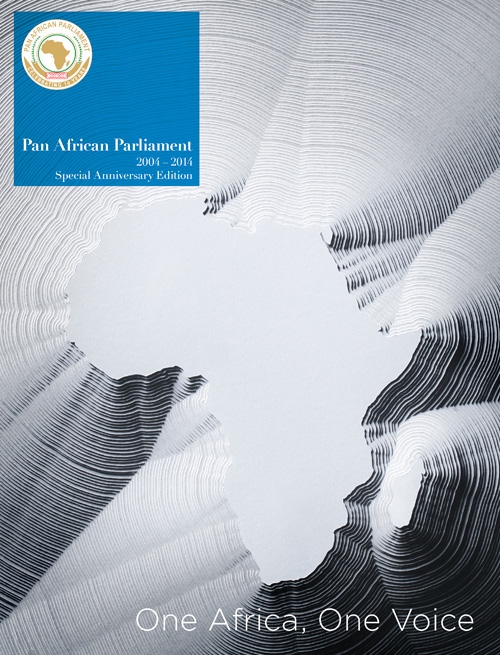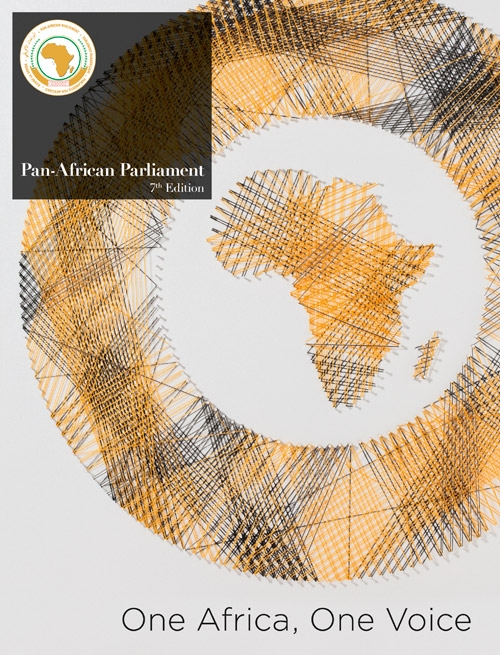
After just over a decade of existence, how has the PAP progressed in terms of becoming a fully legislative body?
The 23rd Ordinary Session of the Summit of the AU concluded in Malabo, Equatorial Guinea on 27 June 2014. The summit’s Assembly, comprising Heads of State and the Government of the AU, was held from 26 to 27 June 2014. In their Assembly organised under the theme 2014 Year of Agriculture and Food Security, the Heads of State and Government adopted a number of key decisions with a view to enhancing the socio-economic and political development of the continent, notably in the areas of education, health, agriculture, trade, and women and youth development. At the end of its deliberations on the envisaged legislative power of the PAP, the AU Meeting of Heads of State and Government adopted the Draft Protocol to the Constitutive Act of the AU on the PAP, paying particular attention to Article 8(1)(a) and 8(2) as revised. The meeting agreed that the PAP may exercise legislative powers on the subjects/areas that the Assembly has approved and or propose model laws in accordance with its Parliamentary mandate.
The articles amended and adopted are Articles 8(1), 8.1 (a) and 8.1 (b).
The PAP is now the legislative organ of the AU. It will make model laws in the areas determined by the Heads of State and Governments in Africa. In addition, the PAP may on its own propose draft model laws to the Assembly for approval by the Assembly. This legislative function is in addition to other functions of the PAP, which include inter alia:
- Receive and consider reports of other organs of the AU as may be referred to it by the Council or the Assembly, including audit and other reports and make recommendations thereon.
- Debate and discuss its own budget and the budget of the AU, and make recommendations thereon to the relevant policy organs.
- Establish any Parliamentary Committee and determine its functions, mandate, composition and term of office.
- Discuss any matter relevant to the AU and make recommendations to the Council or the Assembly as it may deem appropriate.
- Make proposals to the Council on the structure of the Secretariat of the Parliament taking into account its needs.
- Request the attendance of officials of the other organs of the AU at its sessions to offer assistance to the Parliament in the discharge of its duties.
- Promote the programmes and objectives of the AU in Member States.
- Receive, consider and submit opinions on draft legal instruments, treaties and other international agreements as may be referred by the Council or Assembly.
The membership of the PAP shall comprise five Members elected by each State Party. At least two of the elected Members shall be women. A delegation that does not satisfy this requirement shall not have the right to be accredited for representation in the Parliament.
Representation of each State Party must reflect the diversity of political opinions in each National Parliament or other deliberative body.
The election of Members of the PAP by the National Parliaments or another deliberative body shall be conducted as far as possible in the same month throughout the Member States as may be decided by the Assembly.
Until a code is developed for election to the PAP by direct universal suffrage, the procedure for election to the PAP shall be determined by the National Parliament or other deliberative body of each Member State.
A Member of a National Parliament or other deliberative body is eligible to contest an election to the PAP. However, if elected, he or she shall resign from the National Parliament or other deliberative body.
The PAP is now the legislative organ of the AU. It will make model laws in the areas determined by the Heads of State and Governments in Africa
The term of a Member of the PAP shall be five years. He or she shall be eligible for re-election for one further term only.
The term of a Member of the PAP shall commence from the date on which he or she is sworn into office, and shall end on the last day of the term of the Parliament.
The other change relates to the Office of the Clerk of the Parliament. The Clerk of the Parliament is now called Secretary-General and has been assigned the role of an accounting officer through the Bureau of the PAP. The Bureau remains the overall policy body in charge of the operations of the Parliament. The two Deputy Clerks are now called Deputy Secretary-Generals.
The Secretary-General shall be the head of the Secretariat, and will be responsible for the day-to-day management and administration of the affairs and property of the PAP. They shall be accountable to the Parliament through the Bureau.
The implementation of the revised PAP Protocol is, however, subject to the signing and ratification by the requisite number of States before coming into force. At least 28 African Parliaments should ratify the instrument to enable it to come into force.
What will be the most important challenges ahead for the PAP?
To obtain 28 ratifications for the revised PAP Protocol.
How is the PAP involved with other stakeholders to advance the profile and importance of itself and the AU?
The PAP is a member of the AU. It attends meetings of Heads of State and Governments, and submits recommendations on the various issues that it oversees. In addition, the PAP has developed a framework of co-operation with other AU organs.
On a yearly basis, the PAP organises inter-organ meetings with various organs of the AU, in order to track progress on the integration process. The PAP rules and regulations allow citizens and civil society organisations to attend and participate in all its meetings.
The Parliament has created a presence on online social platforms such as Facebook, Twitter and the PAP blog to further and directly engage and share ideas with African citizens 24/7. The website is also used to share information with the public. These platforms can be accessed through these URLs:
http://www.pan-africanparliament.org/
https://www.facebook.com/africanparliament/
http://blog.pan-africanparliament.org/
https://twitter.com/AfrikParliament
How is the PAP contributing towards enhancing the growth of democracy in Africa?
The PAP holds plenary meetings twice a year where it discusses matters of governance. Its committees oversee the implementation of AU decisions. The PAP participates in election observation missions to ensure that elections are undertaken in compliance with AU election regulations.
2015 is the Year of Women’s Empowerment. How is the PAP helping advance the cause of equality?
The PAP has established a Women Caucus and a Committee on Gender to ensure that policy-making processes are mainstreaming gender. The PAP also supports women’s programmes and conferences, and has a gender focus on its recruitment policies.
Africa faces a great challenge in ensuring jobs for its young people. How should countries ideally be going about working towards ensuring their youth are equipped for the future?
Africa needs to develop educational systems that ensure its citizens are skilled in practical subjects and technology. There is no point in churning out graduates who cannot be utilised in the agricultural, mining and other important sectors that propel the development of a country.
The Parliament has created a presence on online social media platforms to further and directly engage and share ideas with African citizens 24/7
How is the PAP working towards fulfilling Agenda 2063?
The PAP will oversee the implementation of the Agenda. Its Members of Parliament will present feedback reports on implementation processes at National level. The PAP is sensitising the general public on Agenda 2063 and making it a priority activity.
Intra-African trade remains quite low compared to other continents. How should the continent be going about increasing its cross-border trading?
Most of the traders are women. The AU should open borders to enable cross-border trading for women. Tariff barriers and other bottlenecks to cross-border trading should be harmonised. The roads and railway infrastructure should also be harmonised to speed up movement of goods. Africa should come together to discuss strategies of enabling intra-African trade and ensure their implementation.
What role is the PAP playing in helping bring about peace and stability on the continent?
The PAP has a Committee on International Co-operation, Peace and Security, which tracks peace and security issues on the continent. The Committee presents its report to Plenary. The PAP ensures the implementation of these directives and also carries out joint election observation missions with the AU to assist in ensuring the peaceful outcome of elections in Africa.
What still needs to be done to eradicate extreme poverty in Africa?
There is a need to prioritise the developmental needs of the continent. The extraction and governance of natural resources in Africa is critical. Africa is rich but does not benefit from its natural resources. Illicit flows of financial resources need to be stopped. Political leadership should be committed to uplifting citizens from poverty. Women must be supported because they carry the burden of poverty. Africa needs to move into the technological era and ensure that it does not remain dependent on other countries. The continent’s education systems should be geared to address developmental needs. There should be focus on agriculture as it is a key driver for development in most African countries.


